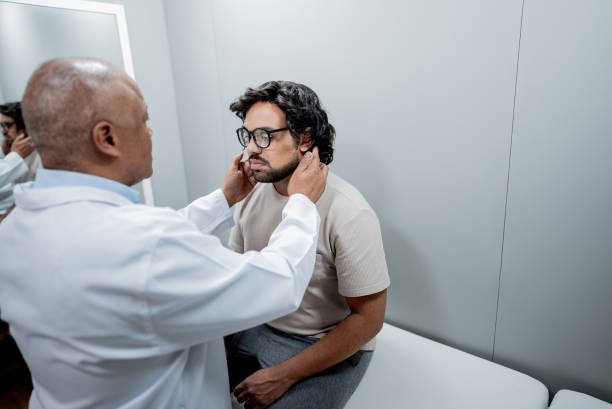How TOGAF Certification Benefits Technology Lawyers in Their Practice
As technology continues to advance rapidly, the legal landscape must also adapt to keep pace with the ever-evolving challenges and opportunities presented by the digital world. This is where technology lawyers come in. These legal professionals specialize in the field of technology law, which encompasses a wide range of legal issues related to technology, including intellectual property, data privacy, cyber security, and more.
To excel in this field, technology lawyers need to have a deep understanding of both legal principles and technological concepts. One way for technology lawyers to enhance their knowledge and expertise in the field is by obtaining a TOGAF certification. TOGAF, which stands for The Open Group Architecture Framework, is a globally recognized certification that provides a comprehensive framework for enterprise architecture.
In this article, we will explore the benefits of TOGAF certification for technology lawyers and how it can enhance their practice.
What is Technology Law?
Before delving into the benefits of TOGAF certification, let’s first define what technology law is. Technology law, also known as IT law or cyber law, is a specialized area of law that deals with legal issues related to technology. It encompasses a wide range of topics, including intellectual property, data protection, e-commerce, cyber security, and telecommunications.
The Benefits of TOGAF Certification for Technology Lawyers
1. Enhanced Understanding of Technology Architecture
TOGAF certification provides technology lawyers with a comprehensive understanding of enterprise architecture. Enterprise architecture refers to the structure and organization of an organization’s IT systems, including its hardware, software, networks, and data. By obtaining TOGAF certification, technology lawyers gain a deep understanding of the principles and best practices for designing, planning, and implementing technology architectures.
This knowledge allows technology lawyers to better advise their clients on technology-related legal matters. They can analyze the technical aspects of a case or transaction and provide informed legal advice based on their understanding of the underlying technology architecture.
2. Improved Communication with Technology Professionals
One of the challenges technology lawyers often face is effectively communicating with technology professionals, such as software developers, IT managers, and cyber security experts. These professionals often use technical jargon and concepts that may be unfamiliar to lawyers without a strong technology background.
TOGAF certification bridges this communication gap by providing technology lawyers with a common language and understanding of technology architecture. With their enhanced knowledge, technology lawyers can engage in meaningful discussions with technology professionals, understand their concerns, and effectively communicate legal concepts and requirements.
3. Better Identification of Legal Risks and Opportunities
In the field of technology law, identifying and mitigating legal risks is crucial. TOGAF certification equips technology lawyers with the tools and methodologies to identify potential legal risks and opportunities within an organization’s technology architecture.
By analyzing the various components of an enterprise architecture, technology lawyers can identify potential legal issues, such as data privacy vulnerabilities, intellectual property infringement risks, or regulatory compliance gaps. This proactive approach allows technology lawyers to provide strategic advice to their clients, helping them navigate legal challenges and seize opportunities in the digital landscape.
4. Enhanced Problem-Solving Skills
TOGAF certification is not just about acquiring technical knowledge; it also emphasizes problem-solving skills. Technology lawyers with TOGAF certification are trained to analyze complex problems, identify root causes, and develop effective solutions.
This problem-solving mindset is invaluable in the field of technology law, where legal issues often intersect with complex technological challenges. Whether it’s resolving a data breach incident, negotiating a technology licensing agreement, or advising on the legal implications of emerging technologies like artificial intelligence or block chain, technology lawyers with TOGAF certification are well-equipped to tackle these complex problems head-on.
5. Competitive Advantage in the Legal Market
In a highly competitive legal market, having a unique set of skills and certifications can give technology lawyers a competitive edge. TOGAF certification sets technology lawyers apart from their peers, demonstrating their commitment to continuous learning and professional development in the field of technology law.
Clients seeking legal representation for technology-related matters are increasingly looking for lawyers with a deep understanding of both legal principles and technology. By showcasing their TOGAF certification, technology lawyers can position themselves as trusted advisors who can effectively navigate the legal complexities of the digital world.
Conclusion
In conclusion, TOGAF certification offers numerous benefits for technology lawyers looking to enhance their practice. From gaining a comprehensive understanding of technology architecture to improving communication with technology professionals, TOGAF certification equips technology lawyers with the knowledge and skills necessary to excel in the field of technology law. By obtaining TOGAF certification, technology lawyers can enhance their problem-solving abilities, identify legal risks and opportunities, and gain a competitive advantage in the legal market.
As technology continues to shape our world, the demand for skilled technology lawyers will only continue to grow. By obtaining a TOGAF certification, technology lawyers can position themselves as trusted advisors who can effectively navigate the legal complexities of the digital landscape.
FAQ
Q1: What is TOGAF certification?
A1: TOGAF certification stands for The Open Group Architecture Framework certification. It is a globally recognized certification that provides a comprehensive framework for enterprise architecture.
Q2: How does TOGAF certification benefit technology lawyers?
A2: TOGAF certification enhances technology lawyers’ understanding of technology architecture, improves communication with technology professionals, helps identify legal risks and opportunities, enhances problem-solving skills, and provides a competitive advantage in the legal market.
Q3: What is technology law?
A3: Technology law, also known as IT law or cyber law, is a specialized area of law that deals with legal issues related to technology. It encompasses topics such as intellectual property, data protection, e-commerce, cybersecurity, and telecommunications.
Q4: Why is technology law important?
A4: Technology law is important because it helps individuals and businesses navigate the complex legal landscape of the digital world. It provides legal guidance and representation in technology-related matters, such as software development, data breaches, patent disputes, and regulatory compliance.






